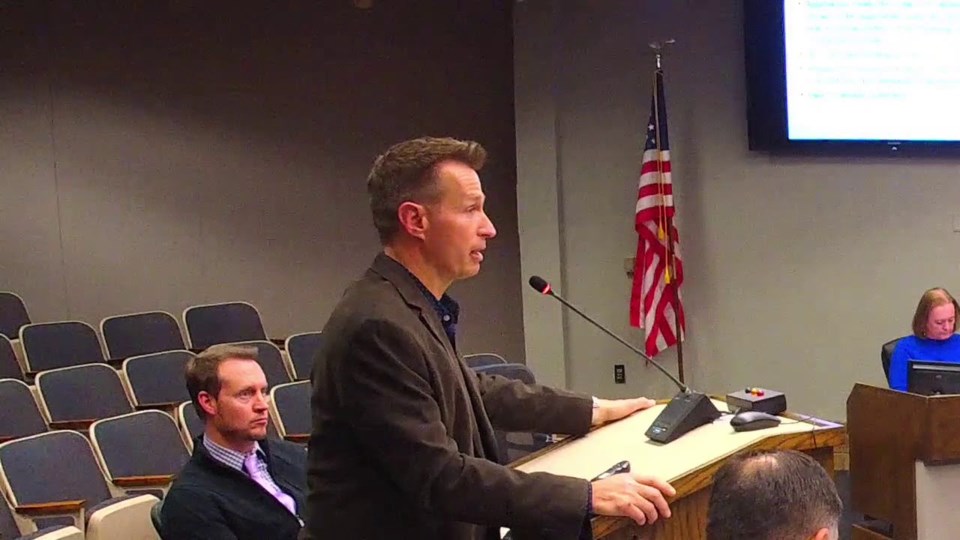This content was originally published by the Longmont Observer and is licensed under a Creative Commons license.
The City Council is considering allowing a zoning variance for Kokua Recovery, a division of Family Help & Wellness.
Kokua is a Hawaiian word that translates as 'extending loving help to others'.
The facility will be about 11,500 SF. The total number of kids will be licensed for up to 40 but average around 32 with 70-80 full-time employees.
The location is the former Bright Horizon's building behind the old JC Pennys Store at 1011 Dry Creek Dr.
Kokua Recovery has asked the city to allow it to open and operate a for-profit recovery center for teenage boys with substance abuse issues. The treatment center also serves as an accredited school for the boys in residence.
The second reading is scheduled for December 12th, 2017.
Council Member Marcia Martin kicked off the discussion expressing concern that the approach being used by Zoning and Planning was overly broad for this kind of facility and, in general, broad zoning changes are 'wrong' and that the city might want more control in the process of approving it. She also asked for a presentation by the applicant with some Q&A between the council and the applicant.
Council Member Joan Peck then added that she was concerned that they didn't know where the facility was going to be located and that this was an overall code change (i.e. possibly too broad a change). She also asked if this zoning change allowed this facility to be in the same zoning areas as marijuana retail shops.
City staff said that they were trying to accommodate a business trying to obtain a state license for a residential child care facility (the technical name used by the state for facilities like this), something our current code doesn't address thoroughly. As part of this proposal, they wanted to limit where this could go until they could finish the larger code update but still address the short-term needs of the business getting started as soon as possible.
Several options are available. First as drafted in the proposed ordinance, it is called a 'permitted use'. Another option would be to change that to a conditional use which would require a neighborhood meeting and go through the planning and zoning process.
City staff mentioned the applicant was present at the meeting and prepared to answer any questions the council may have.
Mayor Pro-tem Polly Christensen was concerned that people kept coming in expecting the council to change all of the code for just one application (referencing the 'too broad' concern Martin started out with). She then used the example of a "charter school that came into light industrial spaces that we're already short on" which, in her view, is a problem. She said, "we need a good balance between our industrial space and our housing and here we're putting housing into an industrial space." She thought this should go into the mixed-use zoning area (Business Mixed Use Industrial).
City Staff again said the applicant could come down and speak to the council to provide information regarding the proposed location.
Christensen said 'maybe' and again reiterated her concerns that she "didn't want us to create more problems as we'd done in the past by allowing variances like this citing the charter school and the brewery, which we tried to get out of, and will be getting into more hot water."
She then said that, like Peck, having this facility in areas that allowed liquor stores and marijuana retail shops nearby as well as no park to go to or place they could be outside and just being isolated in an industrial zone wouldn't be helpful to kids dealing with substance abuse issues. She also thought the city should check more into the background of the company to ensure they have a good record.
Mayor Bagley then asked if someone could move to table the issue to have the applicant prepare a presentation, at that time, the applicant spoke up saying he was prepared now. The applicant, Dr. Ken Huey, then took the podium.
"The kind of clients the facility will be taking are not court remanded kids or kids picked up off the street somewhere." He stressed this was 'parent choice' 'rather high end' treatment.
They looked at putting this facility into larger homes ($1.5M to $5M mansions) but he was concerned that "when you buy a large home next to other large expensive homes, it tends to freak out the neighbors." Hence, the approach of using a facility in a light industrial area. He said, "that you want them near liquor stores and pot outlets because in real life they'll need to deal with that in a safe environment. They don't need a park next door because they have vans that take the kids to many different activities such as skiing 3 days a week at Eldora and 5 days a week at local gyms for workouts, to go mountain biking and hiking with the goal of creating replacement activities alongside the clinical work needed to get the kids clean."
Huey went on to say, "that the kids were middle to upper income and not 'scary'." He also said that "in Colorado you have to desire to be in a facility like this. Anyone can leave at any time. They have a policy of taking you back, once (and only once) if you leave as well. It's designed for those who want to get clean." They wanted a really nice building that wasn't parked directly in the middle of someone's neighborhood which would likely be more problematic.
The Council Voted 6-0 to pass the ordinance and be brought back as a 'conditional use' process on December 12th.
The entire discussion (approximately 30 minutes) is available for viewing in the video below:
https://youtu.be/yEIal4whtao



